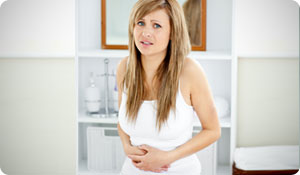
Antibiotics destroy or inhibit the growth of bacteria that can cause infection. And while these medicines are necessary to kill the "bad" bacteria that cause such illnesses as strep throat, urinary tract infections, sinus infection and wound and skin infections, in the treatment process, they often also kill the "good" bacteria in the large intestine, leading to problems like diarrhea and upset stomach. In fact, bouts of diarrhea can be so upsetting to people taking antibiotics, up to one in five people on antibiotics stop taking their full course of therapy, according to researchers at Albert Einstein College of Medicine of Yeshiva University in Bronx, New York.
The study also found that the use of probiotics-live microorganisms, usually bacteria, that are similar to beneficial microorganisms found in the gut-can help people avoid diarrhea. Probiotics, also referred to as "good bacteria," are thought to restore the microbial balance upset by antibiotics and bacterial infections. Probiotic bacterial strains are even added to certain foods like yogurt to aid in digestion and the absorption of food and nutrients. Interest in probiotics also stems from the fact that there are cells in the digestive tract that are connected with the immune system and one theory is that by introducing probiotic bacteria into the intestinal tract, you can boost the body's immune system, giving it more ammunition to fight infection.
Encouraging studies from the National Center for Complementary and Alternative Medicine, part of the National Institutes of Health, are also showing beneficial use of probiotics in the treatment of diarrhea, as well as in the treatment of other problems such as irritable bowel syndrome and urinary tract infections. However, probiotics safety has not been thoroughly studied scientifically, and before taking a probiotic supplement to protect against diarrhea or other digestive problems, be sure to check with your doctor first.
Coping With Antibiotic-Associated Diarrhea
If you're taking antibiotics and have diarrhea, these tips should help relieve your symptoms:
- Drink plenty of fluids-Although plain water is best, fluids with added electrolytes are also beneficial. Avoid beverages that are high in sugar or that contain alcohol or caffeine, which may aggravate your symptoms.
- Choose easy-to-digest foods-Applesauce, bananas and rice are all good foods to try first. Once your symptoms improve, you can slowly add back high-fiber foods like beans, nuts and vegetables.
- Eat small meals-Try eating several small meals throughout the day rather than two or three large ones.
- Ask about anti-diarrheal medications-Ask your doctor if an anti-diarrhea medication, such as Imodium A-D, can help.





